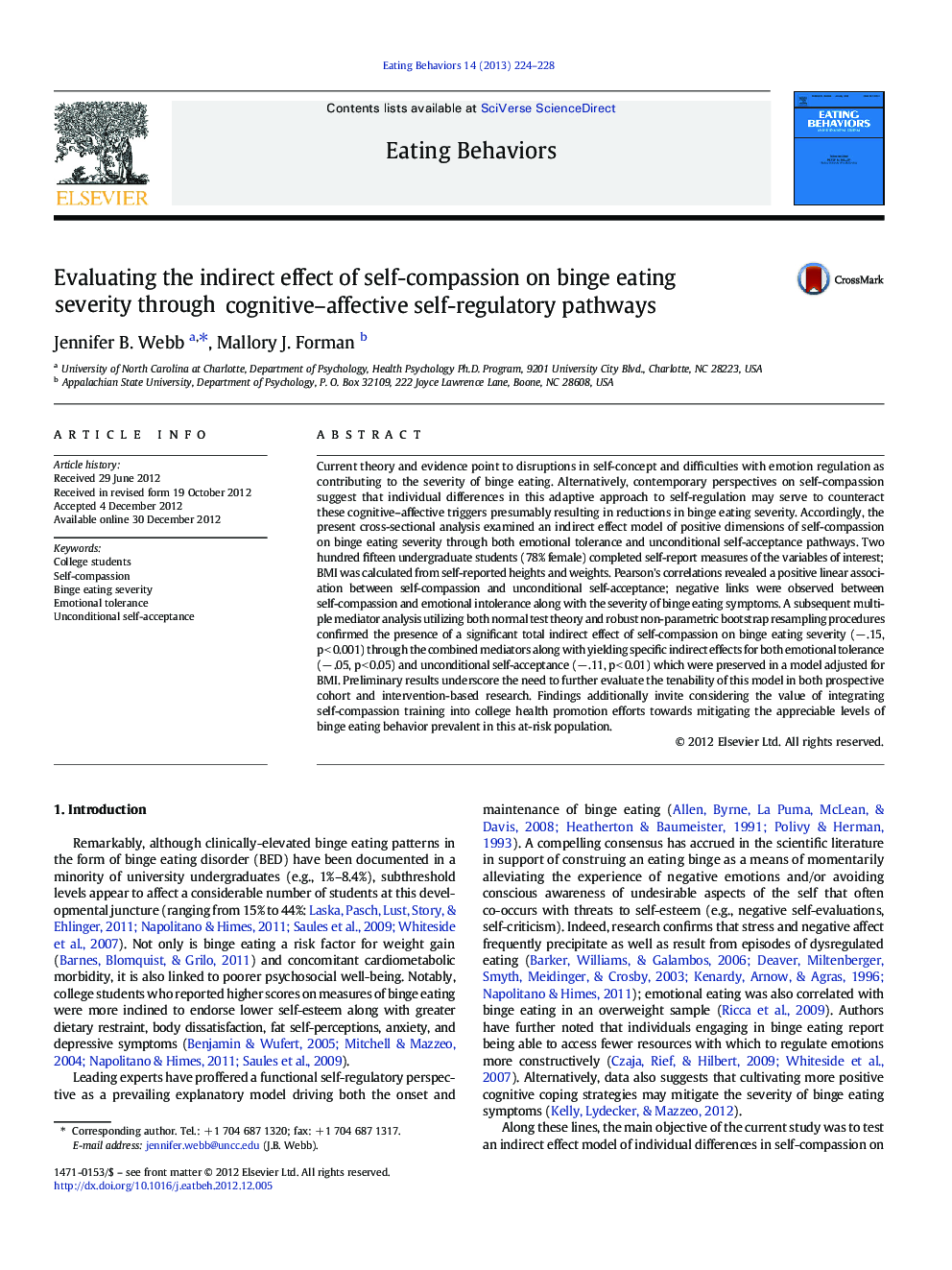| کد مقاله | کد نشریه | سال انتشار | مقاله انگلیسی | نسخه تمام متن |
|---|---|---|---|---|
| 906470 | 917006 | 2013 | 5 صفحه PDF | دانلود رایگان |

Current theory and evidence point to disruptions in self-concept and difficulties with emotion regulation as contributing to the severity of binge eating. Alternatively, contemporary perspectives on self-compassion suggest that individual differences in this adaptive approach to self-regulation may serve to counteract these cognitive–affective triggers presumably resulting in reductions in binge eating severity. Accordingly, the present cross-sectional analysis examined an indirect effect model of positive dimensions of self-compassion on binge eating severity through both emotional tolerance and unconditional self-acceptance pathways. Two hundred fifteen undergraduate students (78% female) completed self-report measures of the variables of interest; BMI was calculated from self-reported heights and weights. Pearson's correlations revealed a positive linear association between self-compassion and unconditional self-acceptance; negative links were observed between self-compassion and emotional intolerance along with the severity of binge eating symptoms. A subsequent multiple mediator analysis utilizing both normal test theory and robust non-parametric bootstrap resampling procedures confirmed the presence of a significant total indirect effect of self-compassion on binge eating severity (− .15, p < 0.001) through the combined mediators along with yielding specific indirect effects for both emotional tolerance (− .05, p < 0.05) and unconditional self-acceptance (− .11, p < 0.01) which were preserved in a model adjusted for BMI. Preliminary results underscore the need to further evaluate the tenability of this model in both prospective cohort and intervention-based research. Findings additionally invite considering the value of integrating self-compassion training into college health promotion efforts towards mitigating the appreciable levels of binge eating behavior prevalent in this at-risk population.
► Positive self-compassion was negatively associated with binge eating severity.
► Both emotional tolerance and unconditional self-acceptance mediated this link.
► Future model testing in intervention and prospective cohort designs is warranted.
► Findings may have implications for guiding college health promotion initiatives.
Journal: Eating Behaviors - Volume 14, Issue 2, April 2013, Pages 224–228